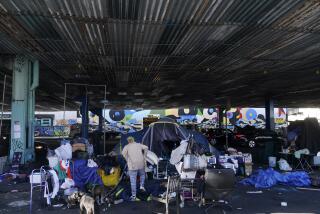Car wars
Last week’s state Supreme Court ruling that prevents California cities from confiscating the cars of suspected johns and drug buyers is a mixed blessing, but the good in it outweighs the bad. Depriving accused criminals of their property before charges against them are proved in court upends the basic American legal principles that a person should be deemed innocent until proved guilty and that punishment is to be meted out by a judge or a jury, not by the police.
It would have been better for the court to reach the outcome it did by finding that local confiscation laws violate the due process clause. The justices instead ruled that seizing cars in drug cases is a power reserved to the state, meaning that Los Angeles can’t take a suspect’s car for the simple reason that California can. With that kind of approach, cities on the front lines in the battle against neighborhood decay give up much of their power to distant Sacramento. But a look at many cities’ grab-now-and-ask-questions-later ordinances confirms the wisdom of the decision.
For example, in Stockton -- the city whose law gave rise to the case -- a police officer claiming probable cause to believe a car was being used in a drug or prostitution crime could take it, and the city could keep it for a year before granting the suspect a hearing on the seizure. Even then, the city gave itself a low standard of proof. Criminal charges might have been dropped, or the suspect could have been acquitted, but too bad; under the lower standard the city could still sell the car and pocket the proceeds. A person was punished not after being found guilty but merely after being accused.
Los Angeles has similar laws, and police argue that the fear of immediately losing a car is the only thing that keeps johns and drug buyers from overrunning some neighborhoods. But cities must not allow their lack of sufficient law enforcement resources to be offset by sweeping police powers.
State law, by contrast, permits forfeiture of a drug offender’s car only on proof beyond a reasonable doubt that the vehicle was used in a specified drug crime. The state also allows cities to bar the driver of a car used in soliciting prostitution from getting behind the same wheel again. It’s a good balance between the needs of law enforcement and the rights of the accused, but watch out: The court’s reasoning virtually invites cities to lobby Sacramento to get their car-snatching powers back. Lawmakers should not heed them.
More to Read
Sign up for Essential California
The most important California stories and recommendations in your inbox every morning.
You may occasionally receive promotional content from the Los Angeles Times.










